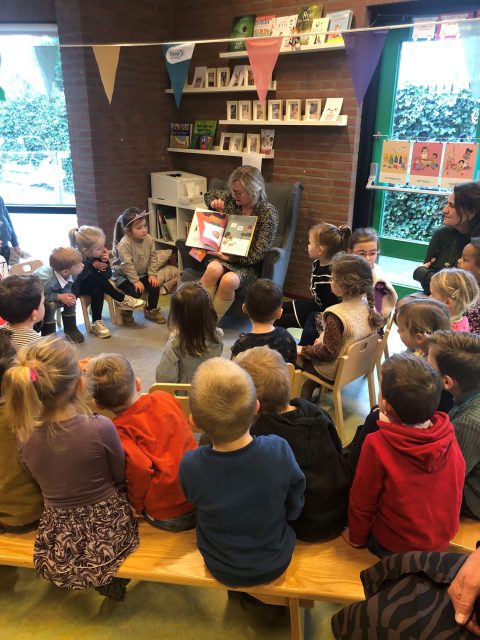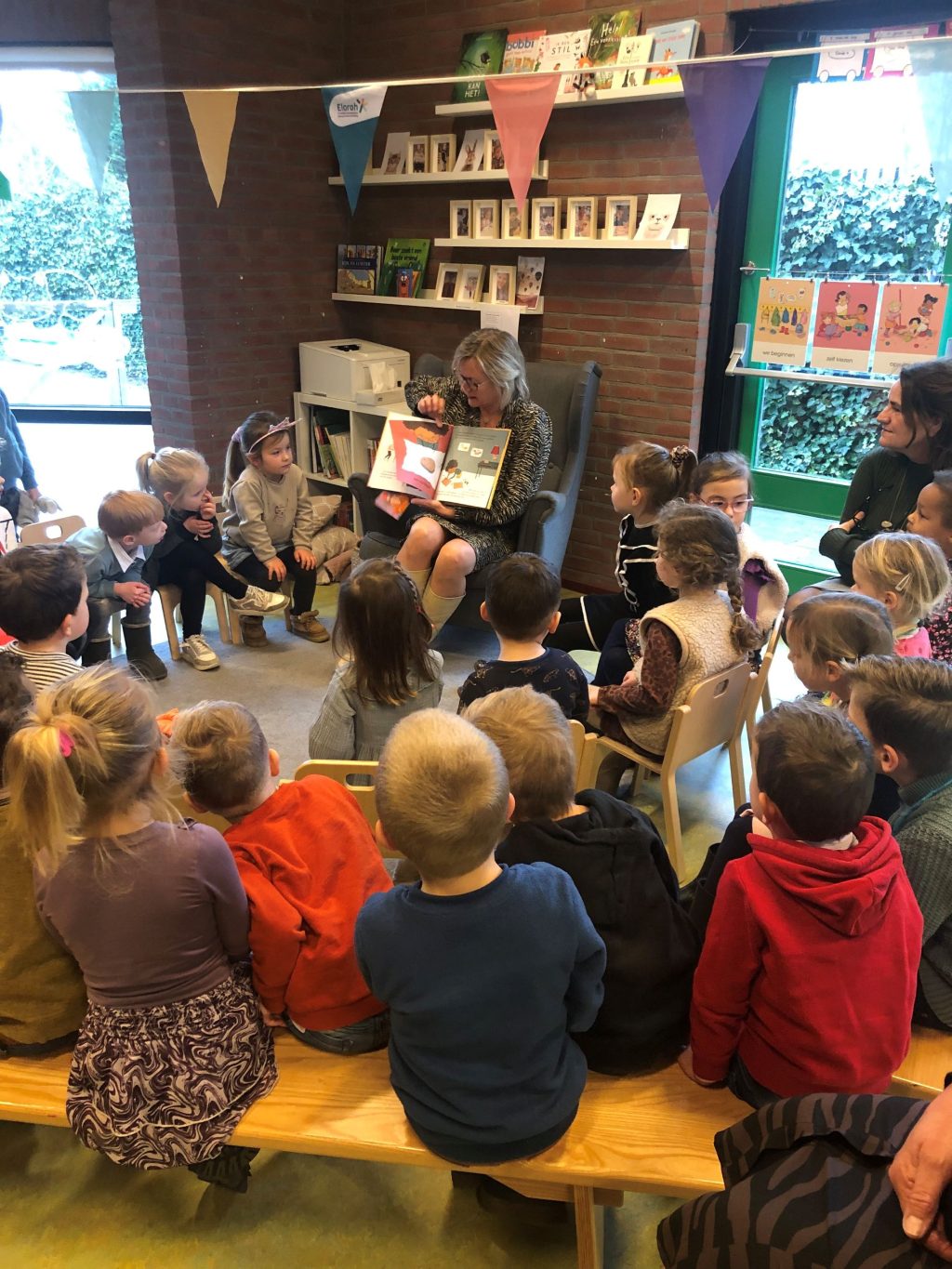What a special day at Elorah in Bruinisse! To make the National Reading Days even more festive, councilor Ankie Smit came along on Wednesday, January 31, as a reading hero. During the National Reading Days, children experience extra reading pleasure and learn a lot of new words. Did you know that children learn 1,000 new words per year from just fifteen minutes of reading aloud per day?
Reading aloud is a party every day at Elorah, but during the National Reading Days things really get going. At the Christian reformed childcare center Elorah in Bruinisse, the Reading Days became even more festive thanks to a visit from Alderman Ankie Smit. The children listened with full attention to the story of 'Aron and the Potato'.
Reading and more activities with the book 'Bear is looking for a best friend'
The selected books all come from the Picture Books Top 10 and have been tailored by the pedagogical policy staff per age category and location. In addition to 'Aron and the Potato', they will also be working on the book 'Bear is looking for a best friend'. In addition to reading aloud, there are many other fun and educational activities planned. “Rawr!” says the bear. Can the children make that sound too? This allows them to playfully practice their sense of sounds. And how does a bear actually walk? The children move through the group like a bear and thus develop their motor skills. They play search games just like the bear looking for a best friend and talk about friendships together. What is a friend? And when are you a good friend? These activities also stimulate children's social-emotional development.
Larger vocabulary, empathy, high involvement and so many more benefits
Reading aloud stimulates children's language development. This way they learn a lot of new words to expand their vocabulary and develop a good sense of language. Partly because they hear how a sentence is constructed. But the benefits of reading aloud go much further than that.
The more interesting children find something, the better they learn it. That's how it works with language. During reading, the pedagogical professionals ensure a high level of involvement with the children. They do this, among other things, by asking questions, using materials that also appear in the book and playing with her or his voice for an extra exciting story. While asking questions, children also learn social skills, such as waiting their turn. This is a skill that will also come in handy later when having conversations, for example. And by using materials from the book, the children link the words to the correct materials.
Children's social-emotional development is also stimulated during reading. While reading, children begin to empathize with the characters of the book. This increases their empathic ability. At the same time their imagination is stimulated. They can completely imagine the adventures of the main character as they are read to them.
Greater educational opportunities thanks to reading aloud from an early age
Language stimulation increases children's educational opportunities. Especially in the language-sensitive period, namely from 0 to 6 years. That is the period when children are even better at learning language. The younger the children are when the reading begins, the better. If children have a positive experience with books and reading aloud at a young age, they often retain an interest in reading at an older age. This is how little readers grow up to be big readers!


